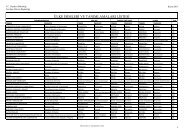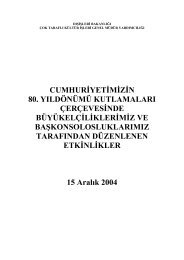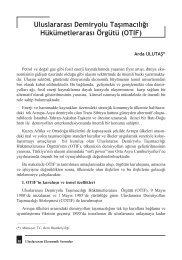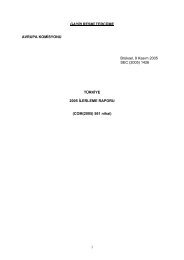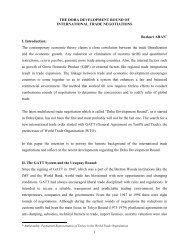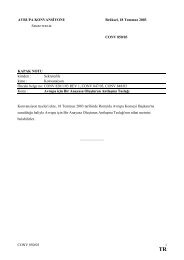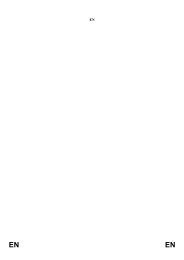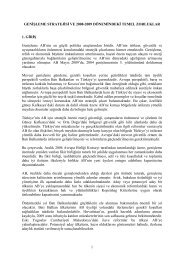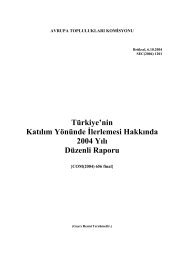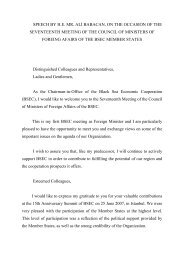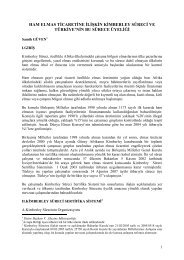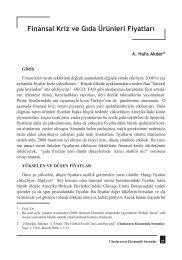ULUSLARARASI EKONOMİK SORUNLAR
ULUSLARARASI EKONOMİK SORUNLAR
ULUSLARARASI EKONOMİK SORUNLAR
Create successful ePaper yourself
Turn your PDF publications into a flip-book with our unique Google optimized e-Paper software.
N. Tolga TUNCER<br />
4.3.1. An Overall Assesment of Trade Facilitation Negotiations and Turkey’s<br />
Position<br />
Perhaps, in no other WTO Negotiation the interests of EU and Turkey clashes so<br />
openly than in the freedom of transit negotiation under Trade Facilitation heading.<br />
Under pressure from its transportation sector which a very developed one in Turkey and<br />
has access to even the top politicians, Turkey has to directly target EU. EU, on the other<br />
hand, is quite uncomfortable with this process. As mentioned before, a recent and very<br />
significant development was that EU made harmonisation in the positions in the<br />
international organisations an opening benchmark for the external relations chapter.<br />
This can be seen as a turning point since from now on, Turkey will formally have no<br />
space to deviate from EU’s position in the international organisations –although it does-.<br />
It is widely believed that among other things, the situation in trade facilitation<br />
negotiations played a significant role.<br />
5. Concluding Remarks<br />
The majority of the economic problems experienced by Turkey are not unique to it.<br />
Almost all developing countries with a large population and considerable amount rural<br />
masses face the same problems though at varying levels: A dual structure of economy<br />
with a relatively developed industrial sector and relatively underdeveloped rural areas<br />
dealing with agriculture. High regional income differences and overall income<br />
disparities in the society. The resulting dilemmas.<br />
At the core of the difficulties faced by Turkey in both Doha Round and Accession<br />
Negotiations with the EU, lies these dilemmas. As already discussed, Turkey has a dual<br />
role in Doha Round. While in agriculture it has a “defensive” role, it has to play the<br />
developed country role in industrial products. As we argued before, this dual position<br />
apparently stems from Turkey’s EU obligations, mainly from the customs union.<br />
However, if we once make a counterfactual exercise and ask what would be if there<br />
were no EU obligations, I believe the result would not be extremely different. The<br />
position in agriculture being the same, perhaps, Turkey would not be that agressively<br />
“progressive” in industrial products since it would have more to lose and more actual<br />
negotiating power. Nevertheless, there are few reasons to believe that Turkey would<br />
change its liberal outlook in industrial products. In agriculture, the seeming dismatch<br />
between Turkey’s rather short-sighted and politically motivated position and Turkey’s<br />
prospective obligations from EU membership is a reality. However, what is to be done<br />
in agriculture in the EU accession process are actually what is to be done in Turkey<br />
sooner or later if it aspires to achieve a sustained and balanced growth period in the long<br />
Uluslararası Ekonomik Sorunlar 31



